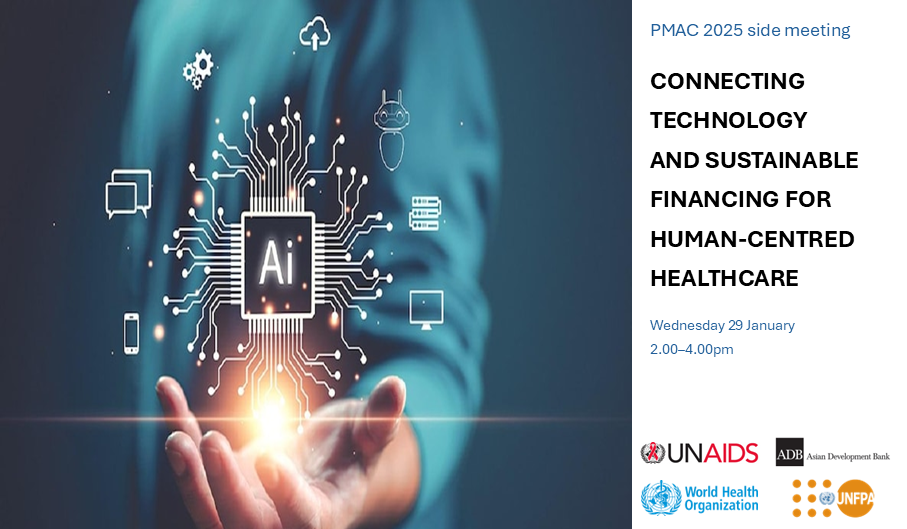Side Meetings
SMB205
Connecting technology and sustainable financing for human-centred healthcare
29
Jan
- UNAIDS
- ADB
- UNFPA
- WHO

This event will explore how AI, big data analytics, and other technologies can be used to optimize resource allocations for health systems, reduce administrative costs, improve the targeting of interventions and ensure that people and communities have equitable and secure access according to their specific needs.
How can we make AI equitable for humanity? What are the ethical and governance considerations and safeguards to ensure that even the most marginalized people in society can reap the benefits while potential harms are minimized? Discussion will include patient identification and confidentiality, automated payment systems for healthcare providers; data analytics for identifying cost-effective interventions, public health allocations and individual health plans, and AI-powered fraud detection in health insurance claims.
Machine learning and other digital technologies can help countries to align health investments with national priorities for achieving the SDGs, including UHC. This includes investments in health promotion, and the prevention and treatment of communicable and non-communicable diseases. Yet despite promising evidence of AI's success in disease diagnostics and health system improvements, vigilance is needed due to the rapid pace of change and the concentration of AI development in specific countries.
It is crucial to incorporate ethical considerations, regulations, standards, and governance mechanisms in the design, development, and deployment of AI-based systems, reflecting health users’ needs and including regulatory oversight for transparency, safety, consistency, and quality.
Join us to explore how digital health technologies can make universal health coverage more achievable in low-resource settings, improve health investment efficiency, enhance data collection and monitoring for public health programming, while protecting user privacy, ensuring client safeguards and increasing healthcare equity for people in remote and underserved areas and among hard-to-reach populations.
Identify the options, issues and benefits of using digital health technologies to improve health promotion, disease prevention and treatment outcomes through improved investment allocation, efficiency, innovation and sustainability, while safeguarding personal data and improving equitable access.

